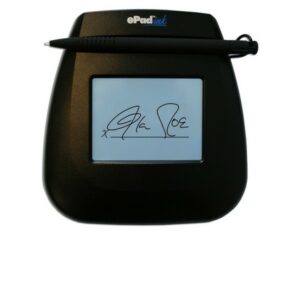While working with electronic signature pads, we are often asked about legality, and whether an electronic signature would stand up against its pen and paper counterpart in a court of law. To help relieve these concerns, we went and collected as much of the world’s legislation on electronic commerce, transactions, and signatures as we were able to find. Please note that our collection is subject to change, and is by no means exhaustive. Where possible, we will provide a PDF in English, but that has not been possible for all of the laws listed here, so you will find some of them in their native tongue.
Most of the world’s esignature legislation is based around the UN’s Commission on International Trade Law’s (UNCITRAL) Model Law on eCommerce, which we also have available. If you would like a copy of any of the below documents, please contact us. Please note that all of the countries listed have their own laws, but where multiple laws which affect esignature legislation exist, we have named both the country, and the act of Government in question. For example, the UK has the Electronic Communications Act, the Electronic Agreements Order, and the Electronic Signature Regulations document.
UNCITRAL Model Law on eCommerce
EU – Directive on eSignatures
UK – Electronic Communications Act
UK – Electronic Agreements Order
UK – Electronic Signature Regulations
USA – eSIGN Act
USA – eSIGN Consumer Consent Provision
USA – Uniform Electronic Transactions Act
Albania
Argentina – Digital Signature Law
Argentina – Decree 2628-02
Argentina – Decree 724-06
Armenia
Australia – Electronic Transactions Act
Australia – New South Wales Electronic Transactions Bill
Australia – Victoria Electronic Transactions Act
Australia – Western Australia Electronic Transactions Bill
Austria
Azerbaijan
Bahamas
Barbados
Belgium
Belize
Brazil
Bulgaria
Canada – Electronic Signature Regulations
Canada – Personal Information Protection and Electronic Documents Act
Canada – Secure Electronic Signature Regulations
Chile
China
Colombia
Costa Rica
Croatia
Cyprus
Czech Republic
Denmark
Dominican Republic
Ecuador
Egypt
Estonia
Finland
France
Germany – eSignature Act
Germany – Framework Law for eSignatures
Greece
Guatemala
Hungary
Iceland
India
Ireland
Italy
Jamaica
Japan
Korea
Latvia
Liechtenstein – eSignature Law
Liechtenstein – Regulation on Electronic Signatures
Lithuania
Luxembourg
Macedonia
Malaysia
Malta
Mauritius
Montenegro
Myanmar
Netherlands
New Zealand
Norway
Pakistan
Panama
Peru
Philippines
Poland
Portugal
Romania
Russia
Samoa
Saudi Arabia
Serbia
Singapore
Slovakia
Slovenia
South Africa
Spain
St Vincent
Sweden
Switzerland
Thailand
Turkey
Ukraine
Uruguay
Venezuela
Vietnam

